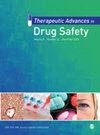Prescription for COVID-19 by non-medical professionals during the pandemic in Colombia: a cross-sectional study
IF 3.4
3区 医学
Q2 PHARMACOLOGY & PHARMACY
引用次数: 5
Abstract
Background: The COVID-19 pandemic has led to an increase in the behavior of self-medication (SM). Given the massive release of misleading information during the pandemic, some pharmacies recommend drugs such as ivermectin, azithromycin, and hydroxychloroquine that are not useful for preventing or treating COVID-19 and could expose patients to unnecessary adverse drug reactions (ADRs), drug-drug interactions (DDIs), disease masking, and antibiotic resistance. Rationale: SM with drugs advertised for COVID-19 can have consequences, and people should be aware of approved uses, potential contraindications, and ADRs. Thus, the aim of this study was to know the drug therapies including natural products and homeopathic drugs offered by Colombian pharmaceutical establishments for the prevention and treatment of COVID-19, as well as the information provided on the safe use of the product. Methods: An observational, cross-sectional mystery shopping study was carried out to determine the pharmaceutical alternatives for the management of COVID-19 offered by pharmaceutical establishments (drugstores, pharmacies, homeopathic pharmacies, and nutritional supplements stores) in Colombia, and information related to the safe use of the product. The study included 482 pharmaceutical establishments from 16 Colombian departments. Data collection was done through telephone calls to each of the establishments following an interview protocol pretending to be a patient who presents symptoms related to COVID-19. Results: About 57.3% (276) of the establishments recommended a product for the treatment of COVID-19 infection, 66.6% (321) asked whether the caller had COVID-19 symptoms and what they are, and 44.2% (213) suggested taking a COVID-19 test. Of 59 drugs suggested by pharmacies, the most recommended were azithromycin, ivermectin, acetaminophen, ibuprofen, and ASA (aspirin). From the establishments that recommended a product, dosage was indicated in 85.5% (236) of the pharmaceutical establishments and 14.5% (40) of the establishments reported the most common adverse effects of this substance. About 9.4% (26) of the establishments reported possible interactions of the recommended drugs and substances with food, beverages, or supplements.Conclusion: Pharmaceutical establishments in Colombia seem to have significantly contributed to self-medication for COVID-19 in Colombia during the pandemic. This behavior is inappropriate, since the mild forms of the disease do not have a specific treatment. Plain Language Summary Self-medication induced by pharmaceutical establishments in Colombia during the COVID-19 pandemic Background: The COVID-19 pandemic has led to an increase in the behavior of self-medication (SM). Given the massive release of misleading information during the pandemic, some pharmacies recommend drugs such as ivermectin, azithromycin, hydroxychloroquine among others, which are not useful for preventing or treating COVID-19 and could expose patients to unnecessary side effects and interactions with other medications. People should be aware of the approved and non-approved uses, and potential side effects of these drugs. Rationale: The aim of this study was to know the drugs, including natural products and homeopathic drugs, offered by Colombian pharmaceutical establishments for the prevention and treatment of COVID-19, as well as the information provided on the safe use of the product. Methods: The study was done using the mystery shopping method, collecting data through telephone calls to each of the establishments by a trained individual pretending to be a patient with COVID-19 symptoms. The study included 482 pharmaceutical establishments from 16 Colombian departments. Results: Of 59 drugs suggested by pharmacies, the most recommended were azithromycin, ivermectin, acetaminophen, ibuprofen, and aspirin. The recommended dose was indicated in 85.5% (236) of the pharmaceutical establishments, and 14.5% (40) of them reported the most common adverse effects of the recommended product. About 9.4% (26) of the establishments reported possible interactions of the recommended drugs and substances with food, beverages, or supplements. Conclusion: The majority of the pharmaceutical establishments included in the study promoted inadequate self-medication for COVID-19 in Colombia during the pandemic.哥伦比亚疫情期间非医疗专业人员对新冠肺炎的处方:一项横断面研究
背景:新冠肺炎大流行导致自我药物治疗(SM)行为的增加。鉴于疫情期间大量发布误导性信息,一些药店推荐伊维菌素、阿奇霉素和羟氯喹等药物,这些药物对预防或治疗新冠肺炎无效,可能使患者面临不必要的药物不良反应(ADR)、药物相互作用(DDI)、疾病掩盖和抗生素耐药性。理由:宣传新冠肺炎药物的SM可能会产生后果,人们应了解批准的用途、潜在禁忌症和不良反应。因此,本研究的目的是了解哥伦比亚制药机构为预防和治疗新冠肺炎提供的药物疗法,包括天然产品和顺势疗法药物,以及提供的安全使用该产品的信息。方法:进行了一项观察性、横断面神秘购物研究,以确定哥伦比亚制药机构(药店、药店、顺势疗法药店和营养补充剂店)提供的用于管理新冠肺炎的药物替代品,以及与产品安全使用相关的信息。这项研究包括来自哥伦比亚16个部门的482家制药机构。数据收集是通过按照采访协议打电话给每个机构完成的,假装是一名出现与新冠肺炎相关症状的患者。结果:约57.3%(276)的机构推荐治疗新冠肺炎感染的产品,66.6%(321)的机构询问打电话的人是否有新冠肺炎症状以及症状是什么,44.2%(213)的机构建议进行新冠肺炎检测。在药店推荐的59种药物中,最推荐的是阿奇霉素、伊维菌素、对乙酰氨基酚、布洛芬和ASA(阿司匹林)。在推荐产品的机构中,85.5%(236)的制药机构显示了剂量,14.5%(40)的机构报告了该物质最常见的不良反应。约9.4%(26)的机构报告了推荐药物和物质与食品、饮料或补充剂可能存在的相互作用。结论:在大流行期间,哥伦比亚的制药机构似乎对哥伦比亚新冠肺炎的自我用药做出了重大贡献。这种行为是不恰当的,因为轻度疾病没有特定的治疗方法。简明语言摘要新冠肺炎大流行期间哥伦比亚制药机构诱导的自我适应背景:新冠肺炎大流行导致自我用药行为(SM)的增加。鉴于疫情期间大量发布误导性信息,一些药店推荐伊维菌素、阿奇霉素、羟氯喹等药物,这些药物对预防或治疗新冠肺炎无效,可能会使患者面临不必要的副作用和与其他药物的相互作用。人们应该了解这些药物的批准和非批准用途,以及潜在的副作用。理由:本研究的目的是了解哥伦比亚制药机构提供的用于预防和治疗新冠肺炎的药物,包括天然产品和顺势疗法药物,以及提供的有关该产品安全使用的信息。方法:该研究采用神秘购物法进行,由一名训练有素的伪装成新冠肺炎症状患者的个人通过给每个机构打电话收集数据。这项研究包括来自哥伦比亚16个部门的482家制药机构。结果:在药店推荐的59种药物中,最推荐的是阿奇霉素、伊维菌素、对乙酰氨基酚、布洛芬和阿司匹林。85.5%(236家)的制药机构指出了推荐剂量,其中14.5%(40家)的机构报告了推荐产品最常见的不良反应。约9.4%(26)的机构报告了推荐药物和物质与食品、饮料或补充剂可能存在的相互作用。结论:研究中包括的大多数制药机构在大流行期间促进了哥伦比亚新冠肺炎的自我用药不足。
本文章由计算机程序翻译,如有差异,请以英文原文为准。
求助全文
约1分钟内获得全文
求助全文
来源期刊

Therapeutic Advances in Drug Safety
Medicine-Pharmacology (medical)
CiteScore
6.70
自引率
4.50%
发文量
31
审稿时长
9 weeks
期刊介绍:
Therapeutic Advances in Drug Safety delivers the highest quality peer-reviewed articles, reviews, and scholarly comment on pioneering efforts and innovative studies pertaining to the safe use of drugs in patients.
The journal has a strong clinical and pharmacological focus and is aimed at clinicians and researchers in drug safety, providing a forum in print and online for publishing the highest quality articles in this area. The editors welcome articles of current interest on research across all areas of drug safety, including therapeutic drug monitoring, pharmacoepidemiology, adverse drug reactions, drug interactions, pharmacokinetics, pharmacovigilance, medication/prescribing errors, risk management, ethics and regulation.
 求助内容:
求助内容: 应助结果提醒方式:
应助结果提醒方式:


